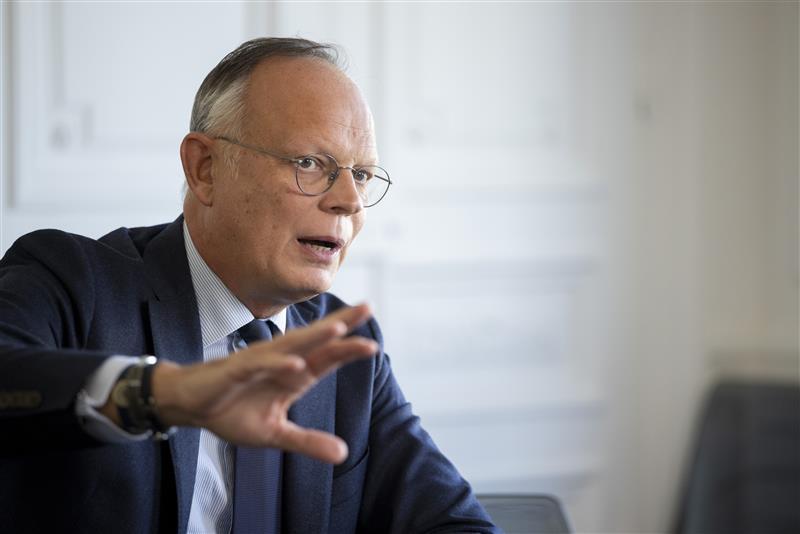France Divided as Élisabeth Borne Proposes Suspension of 2023 Pension Reform
Élisabeth Borne's proposal to suspend the 2023 pension reform divides French politics, with right-wing opposition, union cautious optimism, and internal government tensions.
- • Élisabeth Borne suggests suspending the 2023 pension reform to allow renegotiations.
- • Right-wing leaders and former PM Édouard Philippe strongly oppose the suspension, citing the necessity to work longer and save the pension system.
- • Internal divisions exist within the presidential camp, with some deputies worried about political legacy.
- • Unions view the suspension as a positive step but call for full repeal and caution about government motives.
Key details
The political landscape in France is deeply divided following former Prime Minister Élisabeth Borne's proposal to suspend the controversial 2023 pension reform. Borne, who once championed the reform, suggested that it should not be seen as untouchable and hinted at pausing it until the next presidential election if necessary, to restore national stability. This surprising shift has sparked significant debate across the political spectrum and among unions.
The right, led by figures like Bruno Retailleau and former Prime Minister Édouard Philippe, categorically oppose any suspension. Philippe argued firmly against halting the reform, asserting that "We cannot compromise with the truth and meaning of this pension reform: we must work more." He emphasized the need to save France's pension system through measures like extending the retirement age to possibly 67 and reducing the number of pension schemes. Retailleau's camp echoed this sentiment, describing the suspension as a "red line" that the right is absolutely unwilling to cross.
Within President Macron's presidential majority, the proposal exposed internal rifts. Some Renaissance deputies, such as Maud Bregeon, feared risking their political legacy, while others like Charles Rodwell were shocked by Borne’s suggestion, highlighting ideological divides between the camp's left and right factions during sensitive government budget negotiations.
Union leaders, however, have cautiously welcomed the proposal. Marylise Léon of the CFDT called it a "positive signal," suggesting it might help heal democratic wounds caused by the reform. The CGT's Sophie Binet viewed Borne's stance as an admission of failure but insisted on a full repeal rather than a suspension. The unions also recall the intense opposition during the reform's enactment via Article 49.3, which raised the retirement age from 62 to 64.
Economically, suspending the reform could have steep consequences. Roland Lescure, the resigned Minister of Economy, warned that changes could cost hundreds of millions of euros in 2026 and escalate to billions in 2027.
This impasse shows the country's profound disagreements on pension policy, with debates continuing on how to balance fiscal responsibility, workers' rights, and political stability.
As of October 8, 2025, discussions are ongoing, with no consensus in sight, reflecting the complexity of reforming the French pension system amidst divided political interests and union demands.
This article was translated and synthesized from French sources, providing English-speaking readers with local perspectives.
Source articles (5)
Source comparison
Latest news
2026 Municipal Elections in Poitiers and Montpellier Highlight Political Divisions and Family-Focused Campaigns
Philosophers and Politicians Sound Alarm on Rising Political Violence Amidst Memorable Lyon March
PSG’s Achraf Hakimi Sent to Trial Over 2023 Rape Allegations
Study Reveals Severe Financial and Housing Hardships Among French Students
Political Shifts and Calls for Reason Mark the Lead-up to 2026 French Municipal Elections
Seminar Evaluates Economic and Legal Impact of Ruptures Conventionnelles on French Employment
The top news stories in France
Delivered straight to your inbox each morning.

